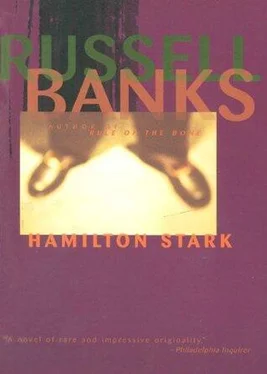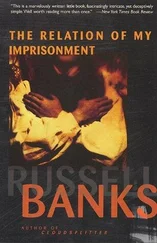65. To Trudy, his first wife: “I can’t tell you I love you because I don’t know what the word means. I mean the word ‘I,’ not ‘love’ or ‘you.’”
66. To Annie, his second wife: “I can’t tell you I love you because I know what ‘you’ and ‘love’ mean and I don’t know what ‘I’ means.”
67. To Jenny, his third wife: “I can’t tell you I love you because I know what ‘you’ and ‘love’ mean.”
68. To Maureen, his fourth wife: “I can’t tell you I love you because I know what ‘you’ means.”
69. To Dora, his fifth wife: “I can’t tell you I love you.”
70. With regard to all five wives, he observed one evening that it would have been possible for him only to have told them he did not love them, because he would then be lying and thus he would know what he meant. He meant to lie. By this it seemed that he believed that the only statements a person could make, and also could attribute meaning to, were statements known by the speaker to be falsehoods.
71. Asked by a friend why he continued to marry, feeling as he did toward women in particular and things in general, his response was to shrug helplessly and say, “When you don’t despise a thing, you let yourself be powerless to resist its advances, when and if it advances.”
72. He disliked most curtains and drapes, all venetian blinds, overhead lamps, tools that were not kept in immaculate condition, and collections of any kind. “I believe in sets of things, not collections.”
73. “‘Everything implies its opposite.’ I read that. The writer didn’t understand what he was writing. He thought it was about logic instead of the world.”
74. He refused to return the greetings of his immediate neighbors, the people who lived along the road to his house, and after a while they ceased greeting him or waving to him when he drove past their homes on his way to and from town and work.
75. He seemed to attract the adulation of adolescent boys, and as long as they remained in awe in silence, he did not discourage it. But as soon as anything more was asked of him, a declaration of loyalty or affection, say, a simple explanation, he in turn asked more of them, and this inevitably drove the boys away, usually hurt, often angry, and always confused as to who had failed whom.
76. On a number of occasions, with something like glee, he quoted a well-known Jamaican proverb: “Me no send, you no come.” He claimed that it meant, “If I didn’t send for you, then you’re not here.”
77. He combed his hair the same way all his life — straight back without a part, cut fairly long, trimmed by a barber every three weeks. Even in his forties, he had no gray hair, and as a result it was difficult to guess his age. People took him for anywhere between twenty-five and fifty-five, depending on their opinion of how old they themselves looked.
78. He kept himself physically very clean, and every morning he shaved himself meticulously, using no cologne or aftershave lotion on his face other than coarse rubbing alcohol. He used a straight razor, which he honed daily on a two-inch-wide leather strop, and a mug and brush. The razor, strop, mug and brush had all belonged to his father, and every morning while he shaved he thought of his father every morning shaving who must have had some other way of calling forth his father, for the grandfather, the one who had died drunk in a snowbank, had been a bearded man. In that way, every morning while he shaved he was able to think of his grandfather, a man he had never met and who had never shaved. This process satisfied him doubly because it demonstrated for him the way he believed everything worked.
79. He participated in no sports, had not played a game of any kind since his adolescence. The only kind of fishing he did was what is called “bottom-fishing,” and though he owned numerous firearms, both rifles and handguns, he hunted only what he called “pests,” crows, woodchucks, rats that scavenged his rubbish and other used-up household articles dumped in the field in front of his house.
80. Where other people saw only white, he claimed to have recognized twenty-one different shades of the color of snow. What he said he saw were eight shades of gray, seven of yellow, and six of blue. His favorite snow color was “blue number four.” Black and white, as colors of anything, were unknown to him, he insisted.
81. Drunk, regardless of whether he was speaking to a stranger or to an acquaintance, he usually spoke in accents — Irish, Southern, Italian, and so on. Then after a few more shots of Canadian Club and bottles of ale, he would begin to speak in foreign languages, or what the people around him took for foreign languages. If a French-Canadian were present, he would speak a bit of French. Occasionally, if it came out that the person he was talking to was fluent in some other foreign language than French, in Spanish, say, or German, he would start dropping sentences, phrases, words, as well as entire paragraphs, that seemed to be in Spanish or German. No one ever challenged him on his proficiency, and surely no one dared to challenge his veracity. The people usually just smiled and nodded, the way they would if someone had merely introduced a pleasant non sequitur into the conversation, which by then would have been drunken, loud, and digressive anyway, full of fits and stops, starts and interruptions. What matter, then, if some of the fits and stops came in foreign languages that no one in the group, except the speaker, seemed to understand? In this way, he had spoken in recent years with dozens of French-Canadian lumbermen, millhands, and fellow construction workers, an Italian-American formalist painter from New York City with a summer house on Bow Lake, four Creole-speaking Jamaican transient farmworkers, a Portuguese fisherman visiting relatives in Fall River, a pair of Russian chemists at a convention in Breton Woods, a Venezuelan student at the University of New Hampshire, many Greek cooks, restaurant managers and waitresses, a Chinese Bible salesman, and six Japanese tourists. Additionally, in what he claimed were the original languages, he had made references to and quotations from numerous works of literature written in ancient Greek, Latin, Sanscrit, and Hebrew. As he rarely bothered to translate these into English, it was not known how accurately he was quoting the original, if at all. And of course, always at these times he was extremely drunk, and the personality he was exhibiting was so vivid that, while it could not be ignored, neither could it be taken seriously — that is, as literally a personality.
82. He wore size 13 EEE shoes, over-the-ankle, moccasin-toed workshoes with a steel-reinforced toe and heel. At all times he owned three pairs of these shoes, one brand-new, one two years old, and one four years old, all of them purchased by mail from L. L. Bean in Freeport, Maine. These were the only shoes he owned, and every two years, when he bought a new pair, he threw away the oldest pair, just tossed them over the fence into the field in front.
83. He sent the apprentice pipefitter, his very first day on the job, to the toolshed for a glass-stapler. After a while the boy returned, saying he couldn’t find it, and then, timidly, asked him what a glass-stapler looked like. He stared at the boy with apparent disgust and after a moment told him it looked just like it ought to look. “Keep in mind the function, and you’ll figure out the form,” he said grumpily and walked off. The boy asked the other men, who smiled and sent him on several wild goose chases before the boy finally figured out what was happening, and then everyone had a good laugh together. “You can’t find what doesn’t exist,” he advised the boy. “But remember, you can’t lose it, either.” The boy nodded somberly, as if understanding, and the men looked from one to the other and grinned knowingly. Later in the day, one of them said to the boy, “He’s a little crazy, y’know. But don’t let it worry you none, because he never lets it interfere with his job.”
Читать дальше












